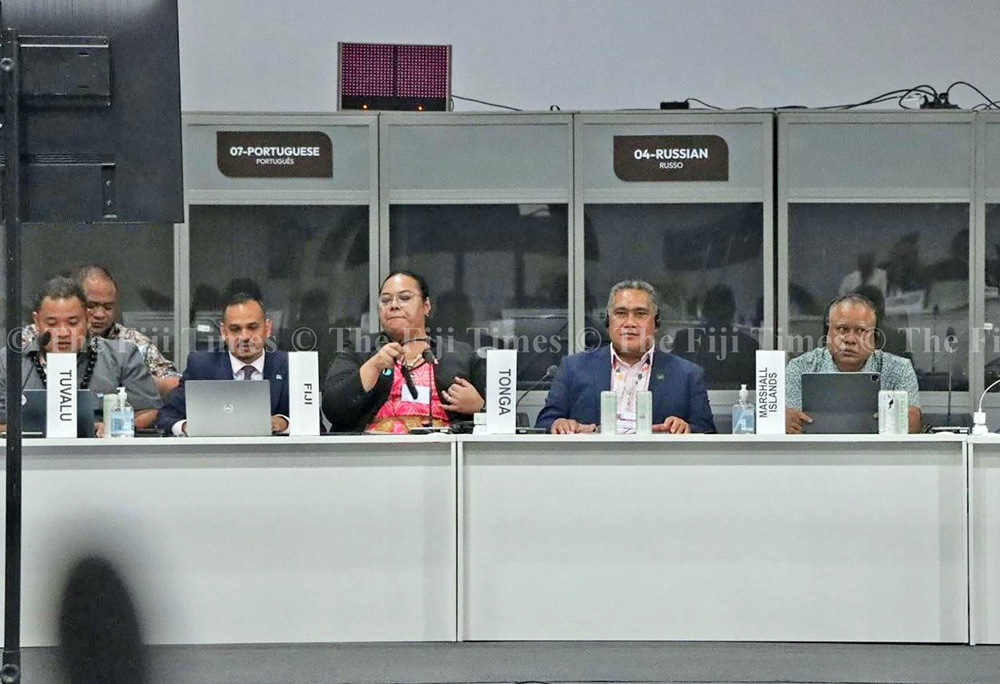Developed countries have been urged to deliver $US300billion ($F682b) in annual climate finance to developing nations well before the 2035 target and triple the adaptation finance.
The $300billion annual climate finance target comes from the United Nations Framework Convention on Climate Change (UNFCCC) and was agreed under the Paris Agreement as part of developed countries’ commitment to support developing nations. It entails financial assistance to help developing countries mitigate greenhouse gas emissions, adapt to climate impacts, and transition to low-carbon, climate-resilient economies.
However, SIDS from conversations at COP30 don’t believe the $300billion annual climate finance pledge will be delivered on time or in full, the various negotiations and panels have cited past failures and lack of binding commitments.
Minister for Environment and Climate Change Mosese Bulitavu, speaking on behalf of 14 Pacific SIDS, made the call emphasising the need for detailed reporting on climate finance, including allocations for adaptation, loss and damage, timelines, and delivery channels.
“The adjustment and subsequent filtering out of outdated pledges, is also necessary,” Mr Bulitavu said.
“It is also necessary to see, in the near term, the full and accelerated delivery of existing pledges and we similarly urge swift delivery, by developed country parties, of the $US300 billion per year well before the 2035 finance commitment, necessary to scale ambition and achieve the objectives of the Paris Agreement.
“This is not only about numbers, but also about the quality of finance.
“We need to restore confidence that commitments under the Paris Agreement will be honoured.”
According to the UNEP Adaptation Gap Report 2025, developing countries require up to $US339billion annually for adaptation measures, yet only around 5 per cent of global climate finance currently reaches these efforts.
Mr Bulitavu urged COP30 to triple adaptation finance by 2030, using 2022 funding levels as a baseline.
“Multilateral development banks must align with Article 2.1(c), not by shifting burdens to the private sector, but by de-risking investments and expanding concessionality for those with limited fiscal space, particularly cognisant of the climate resilience development component.
“The Pacific’s message is clear: climate finance is not charity, it is climate justice in action.”



